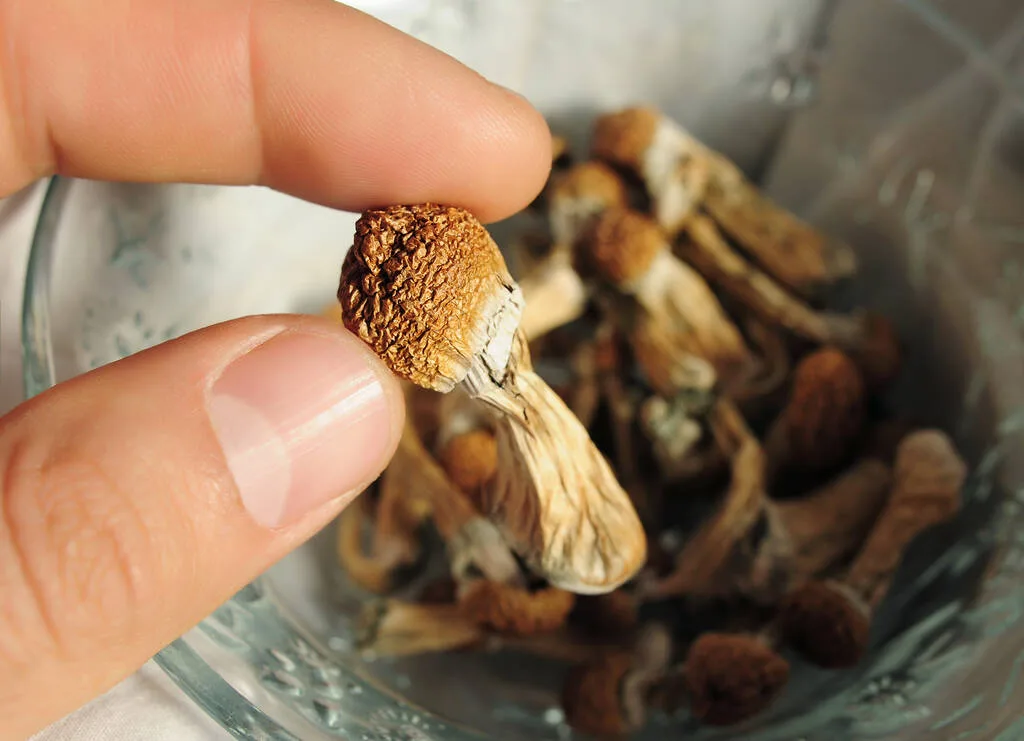A new study published in the journal Frontiers in Neuroscience explores the potential of psilocybin as a treatment for Alzheimer’s disease.

Dried psilocybin mushrooms.
“Alzheimer’s disease (AD) stands as a formidable neurodegenerative ailment and a prominent contributor to dementia”, states the study, conducted by researchers from Huazhong University of Science and Technology and Binzhou Medical University Hospital. “The scarcity of available therapies for AD accentuates the exigency for innovative treatment modalities.”
Psilocybin, the hallucinogenic compound found in magic mushrooms, has “garnered attention within the neuropsychiatric realm due to its established safety and efficacy in treating depression”, notes researchers. “Nonetheless, its potential as a therapeutic avenue for AD remains largely uncharted.”
This comprehensive review “endeavors to encapsulate the pharmacological effects of psilocybin while elucidating the existing evidence concerning its potential mechanisms contributing to a positive impact on AD.”
The study states:
Noteworthy is psilocybin’s promising role in mitigating anxiety and depression symptoms in AD patients. Acknowledging the attendant adverse reactions, we proffer strategies aimed at tempering or mitigating its hallucinogenic effects. Moreover, we broach the ethical and legal dimensions inherent in psilocybin’s exploration for AD treatment. By traversing these avenues, We propose therapeutic potential of psilocybin in the nuanced management of Alzheimer’s disease.
For the study’s full text, click here.







